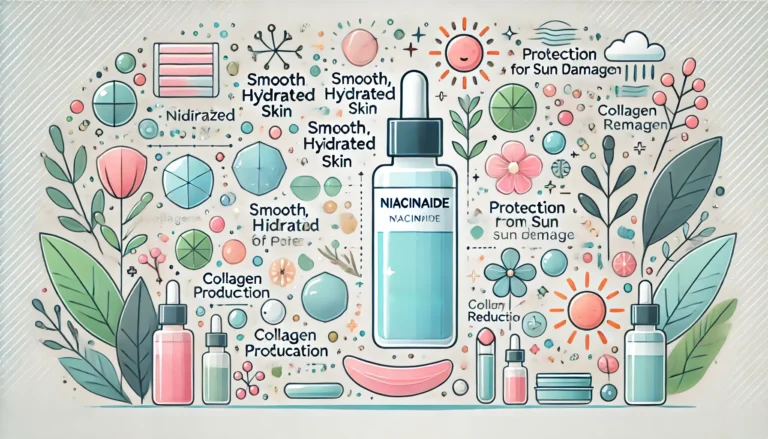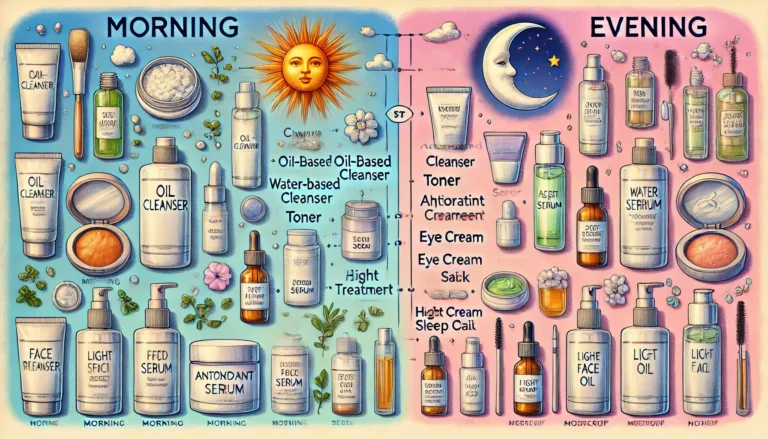Benefits of Rosehip Oil for Glowing, Healthy Skin
It’s natural to feel overwhelmed when searching for skincare solutions that genuinely work, especially with so many products promising radiant, youthful skin. That’s why understanding how rosehip oil can transform your skin is crucial. In this article, we’ll explore the vast benefits of rosehip oil, a potent natural remedy packed with vitamins, antioxidants, and essential fatty acids. You’ll discover how it hydrates, nourishes, and repairs skin, making it a necessary addition to your beauty routine.
What Makes Rosehip Oil So Powerful?
Rosehip oil for face treatments, or rosehip seed oil, is not to be confused with rose oil. While rose oil is extracted from the fragrant petals of roses, rosehip seed oil benefits come from the fruit and seeds of the Rosa canina bush, which is predominantly cultivated in Chile. The distinction between these two oils is essential as their properties differ significantly. Rosehip oil, often prized for its healing and skin-nourishing attributes, has been used for centuries due to its dense concentration of skin-enhancing vitamins and fatty acids. Moreover, the oil is rich in phenols, compounds that exhibit antiviral, antibacterial, and antifungal effects, making it a potent natural remedy.

A Rich History of Healing and Beauty
Renowned for its regenerative properties since ancient times, rosehip oil benefits are vast. The oil teems with vitamins such as A, C, and E alongside omega fatty acids that help restore skin elasticity and promote cell renewal. This oil’s ability to support skin repair and hydration extends beyond cosmetic appeal—it plays a critical role in healing scars, reducing inflammation, and combating various skin conditions. Whether used as a carrier oil for potent essential oils or applied directly, rosehip oil remains a versatile and reliable addition to skincare routines worldwide.
Hydration: A Vital Element for Radiant Skin
Maintaining skin hydration is paramount to achieving soft, supple skin. As environmental factors and aging take their toll, skin loses its natural moisture, leading to dryness and irritation. Rose Hips oil for face care excels at hydrating the skin due to its rich content of essential fatty acids, including linoleic and linolenic acids. These compounds strengthen cell walls, preventing water loss and restoring hydration levels deep within the skin layers. Thanks to its lightweight texture, rosehip oil penetrates the skin quickly, delivering nourishment where needed.
Moisturizing for All Skin Types
Rosehip seed oil benefits include its function as a non-greasy, dry oil, making it a fantastic moisturizer suitable for all skin types. Its ability to lock in moisture and its rapid absorption rate make it an ideal daily product for those with oily, combination, or even sensitive skin. Scientific studies have further demonstrated its moisturizing capabilities. For instance, a 2015 study revealed that participants who took rosehip powder orally experienced notable improvements in skin hydration, suggesting the oil’s similar topical effects can profoundly enhance skin texture and moisture retention.

Brighten and Exfoliate for a Glowing Complexion
Incorporating rosehip oil for the face into your skincare routine can also aid in natural exfoliation. Dull, tired skin is often the result of slow skin cell turnover, but the vitamin A (retinol) present in rosehip oil accelerates this process. A brighter and more radiant complexion emerges as dead skin cells are gently sloughed away. Regular use of rosehip oil helps diminish dullness, revealing a fresh, vibrant glow that reflects the health of your skin.
Boost Collagen Production Naturally
Collagen is the protein that keeps your skin firm, elastic, and youthful. However, as we age, collagen production decreases, leading to sagging and wrinkles. Rosehip oil’s benefits extend to stimulating collagen synthesis thanks to its rich content of retinoids and vitamin A. Furthermore, rosehip oil contains compounds that inhibit the activity of MMP-1, an enzyme that breaks down collagen. Scientific research supports the idea that rosehip oil can improve skin elasticity and firmness, making it a valuable ally in the fight against aging.
Soothe Inflammation and Calm Irritated Skin
Inflammation is the root cause of many skin conditions, from rosacea to eczema. With its high concentration of polyphenols, anthocyanins, and vitamin E, Rosehip oil offers powerful anti-inflammatory properties. These compounds work synergistically to calm irritated skin, reduce redness, and alleviate the discomfort associated with inflammatory skin issues. Whether dealing with dermatitis or flare-ups of psoriasis, applying rosehip oil regularly can provide relief while promoting your skin’s overall health and balance.

Protect Against Sun Damage
Cumulative exposure to ultraviolet (UV) radiation can accelerate aging and damage the skin’s ability to produce collagen. Rosehip oil’s wealth of antioxidants, particularly vitamins A and E, offers protection against these harmful effects. While it’s important to note that rosehip oil should not replace sunscreen, it can complement your sun protection routine by repairing damaged skin and preventing further photoaging. Using rosehip seed oil on the face can ensure you reap these protective benefits, mainly if applied under sunscreen or as part of a nighttime repair routine.
Diminish Hyperpigmentation Naturally
Hyperpigmentation, those stubborn dark spots caused by excessive melanin production, is often triggered by sun exposure, hormonal changes, or certain medications. Rosehip oil’s high concentration of retinoids, lycopene, and beta-carotene makes it a formidable tool in reducing hyperpigmentation. These ingredients have been shown to lighten skin tone over time, with regular use leading to a more even complexion. Rosehip seed oil’s benefits in targeting these dark spots make it a popular ingredient in many skin-lightening products.
Combat Scarring and Fine Lines
Thanks to its regenerative properties, rosehip oil is widely revered for its ability to minimize the appearance of scars and fine lines. Packed with essential fatty acids and antioxidants, this oil facilitates tissue repair and encourages the renewal of skin cells. In a 2015 study, participants who applied rosehip oil to post-surgical scars twice daily observed a noticeable improvement in scar color and texture after 12 weeks. Similarly, the oil has proven effective at reducing the appearance of fine lines, particularly around the eyes, known as crow’s feet.

Enhance Skin’s Immunity and Defense Mechanisms
Rosehip oil’s benefits extend beyond cosmetic appeal and strengthen the skin’s natural defenses. Rich in polyunsaturated fatty acids, particularly linoleic acid, the oil fortifies cell membranes, creating a more substantial barrier against bacteria, pollution, and other harmful environmental factors. In addition, studies have shown that rosehip powder bolsters the longevity and resilience of skin cells, making rosehip oil a valuable asset in preventing breakouts and infections while enhancing overall skin immunity.
How to Use Rosehip Seed Oil on Face Effectively
Incorporating rosehip oil into your skincare routine is simple, but there are a few best practices. As a lightweight, easily absorbable oil, it can be applied twice daily, either on its own or mixed with your favorite moisturizer or carrier oil. However, learning how to safely use rosehip seed oil on the face is essential. Always conduct a patch test before widespread use to ensure no allergic reactions occur.
To perform a patch test:
- Apply a small amount of rosehip oil to your forearm or wrist.
- Cover the area and wait for 24 hours.
- If no irritation occurs, you can use it in other areas.
Additionally, storing rosehip oil in a cool, dark place will help preserve its potency. Cold-pressed, organic oil versions are ideal for maintaining their purity and efficacy. When selecting a product, look for reputable brands such as Radha Rosehip Oil or Kate Blanc Rosehip Seed Oil to ensure the best quality.
Possible Side Effects and Risks
While rosehip oil is generally safe for most skin types, allergic reactions can occur. Symptoms such as redness, itching, or watery eyes indicate an allergy, so it’s best to discontinue use and consult a healthcare provider. In rare cases, severe allergic reactions like anaphylaxis may require immediate medical attention.
Final Thoughts
Rosehip oil offers abundant skin benefits, from hydrating and moisturizing to reducing the appearance of scars and fine lines. Its ability to protect against sun damage, boost collagen production, and enhance skin immunity makes it a powerhouse ingredient in any skincare regimen. With its broad range of uses and minimal risks, rosehip oil is a versatile and practical option for those seeking healthier, rejuvenated skin.




